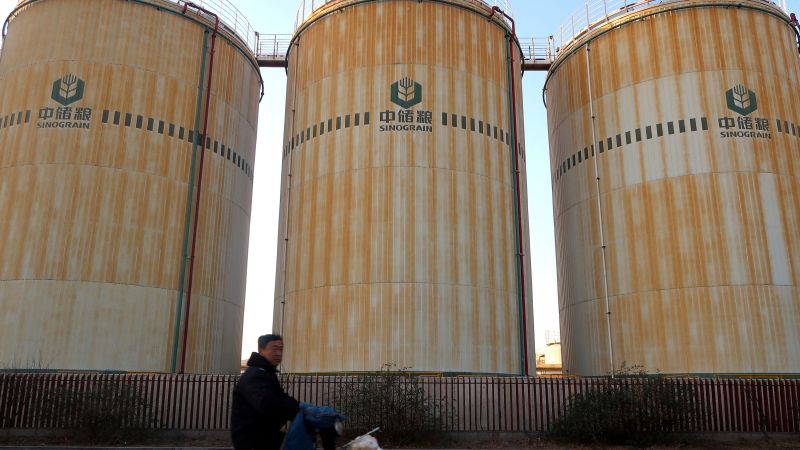Public outrage is mounting in China over allegations that a major state-owned food company has been cutting costs by using the same tankers to carry fuel and cooking oil – without cleaning them in between.
The scandal, which implicates China’s largest grain storage and transport company Sinograin, and private conglomerate Hopefull Grain and Oil Group, has raised concerns of food contamination in a country rocked in recent decades by a string of food and drug safety scares – and evoked harsh criticism from Chinese state media.
It was an “open secret” in the transport industry that the tankers were doing double duty, according to a report in the state-linked outlet Beijing News last week, which alleged that trucks carrying certain fuel or chemical liquids were also used to transport edible liquids such as cooking oil, syrup and soybean oil, without proper cleaning procedures.



Not just that chapter, either. You should read the whole book.
In other words, you can’t quote the relevant passage where an ever-increasing number of billionaires who control the means of production is a feature of communism.
The accumulation of labor power through central management of the capital stock isn’t something you’re going to understand or accept as a single sentence.
You want this to be like the Bible, where you can just quote John 3:16 and nod sagely, as though it should be revealed wisdom.
But the material is more complex than a bronze age scripture verse.
That said, capital accommodation is one stage of economic development. This is the chapter which covers the process of economic development. At some point, you do need a handful of central administrators to oversee productive use of capital. And these administrators will become rich as a result.
Marxism doesn’t refute this process, it leverages the process towards Socialist accumulation.
I’m pretty sure, based on the Marx I have read, that a pillar of Marxism and communism is that the workers control the means of production, but you have taught me that what is meant by “the workers control the means of production” is “one multibillionaire controls the means of production for tens of thousands of workers.” So thank you, I had no idea that all this time, the U.S. was a communist country too.
Through workers councils and vanguard parties that govern the country.
That doesn’t preclude any one person from accumulating more currency than another.
He doesn’t control it. He administers it on behalf of the workers’ state.
If you read the whole book, rather than panicking at being handed a single chapter, you’ll know more
Now that’s just nonsense:
https://en.wikipedia.org/wiki/Zhong_Shanshan
He literally earned $5 billion in one day and became the sixth-richest person in the world because his company became publicly traded.
https://web.archive.org/web/20210115223106/https://www.forbes.com/sites/jenniferwang/2021/01/05/chinas-bottled-water-mogul-gains-5-billion-in-one-day-becomes-worlds-sixth-richest-person/?sh=7872f8b6792d
Entrepreneurship and buying and selling stocks, publicly traded companies… Things China didn’t have for decades back when it was apparently less communist (who knew Mao was so non-communist), but which the U.S. also has now.
Once again, sure sounds like the U.S. is just as communist as China.
But hey, I’m sure the fewer than 300 billionaires in China with their over $4 trillion in wealth back in 2020 have distributed it all to the workers now, right?
https://www.cnbc.com/2020/10/20/chinas-billionaires-see-biggest-gains-ever-fueled-by-ipos.html
Or is hoarding wealth also a big part of what makes a country a communist one?
That’s how strong federal governmental systems work.
He didn’t earn anything. He benefited from a sudden upward swing in speculative asset prices.
https://www.marxists.org/archive/marx/works/1894-c3/ch25.htm
PLEASE READ MARX
I’ve read Capital and the Communist Manifesto, which is why I know that billionaires who hoard money and own controlling interests in publicly traded corporations is a feature of capitalism, and also why I know that China didn’t used to have such things.
But to hear you and others tell it, China was more capitalist under Mao than it is today.
Then you should already be familiar with ficticious capital and know better than to claim someone “earned $5B” in the middle of a speculative asset bubble.
Neither Nongfu Spring beverage company nor Beijing Wantai Biological Pharmacy Enterprise are SOEs. Which Chinese billionaire owns a controlling interest in a Chinese SOE?